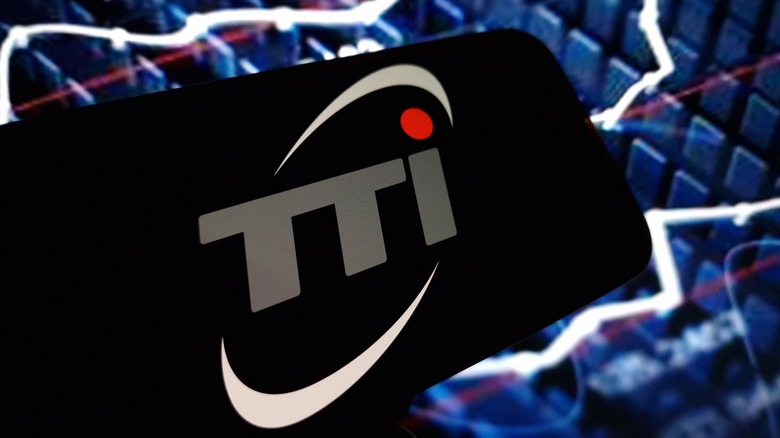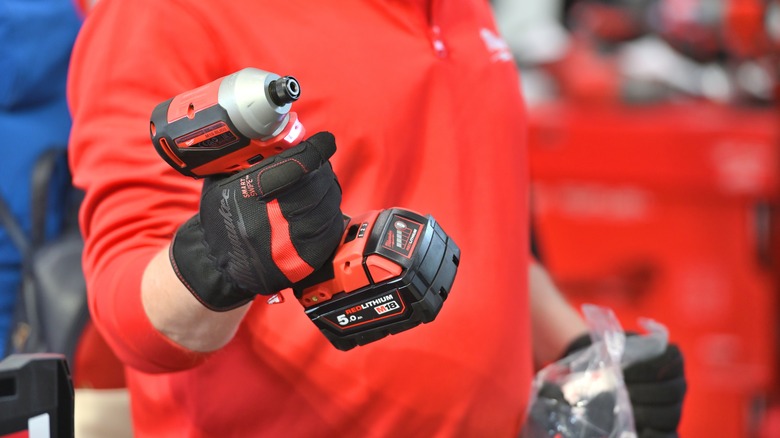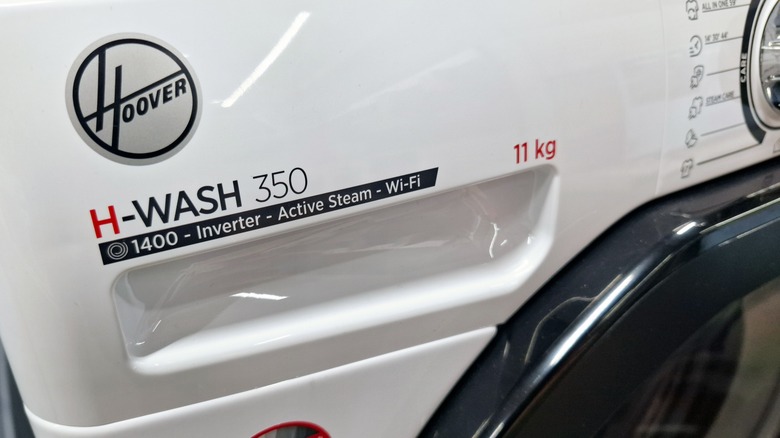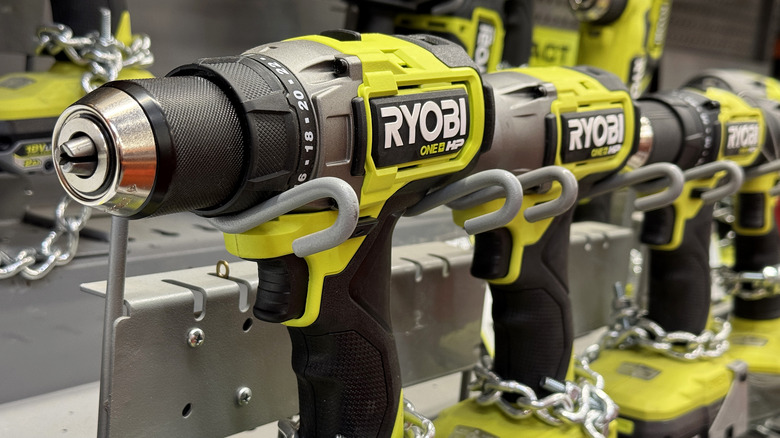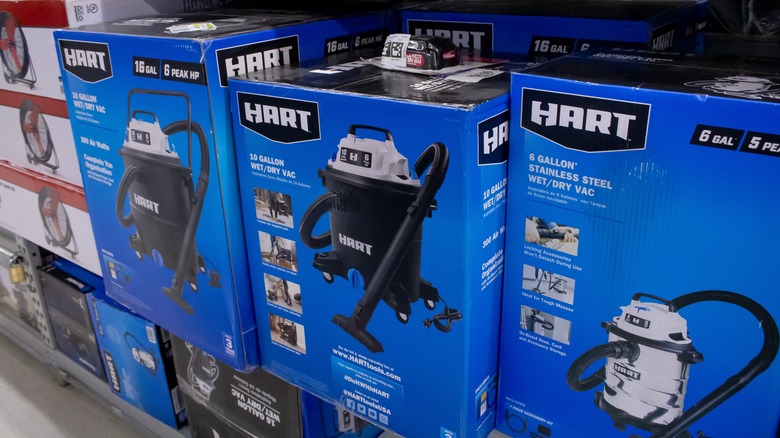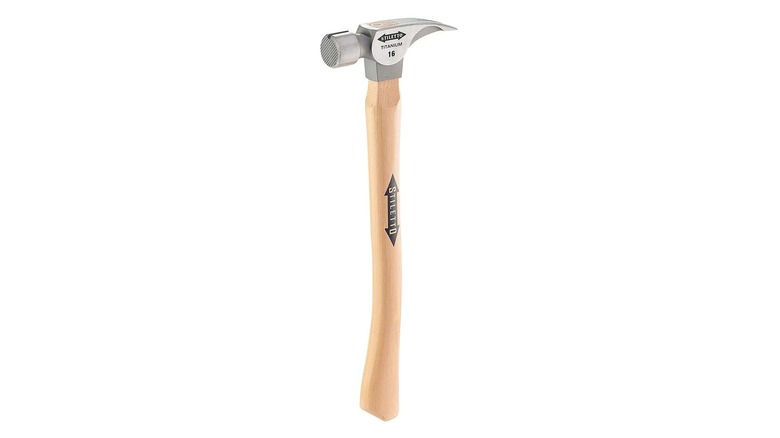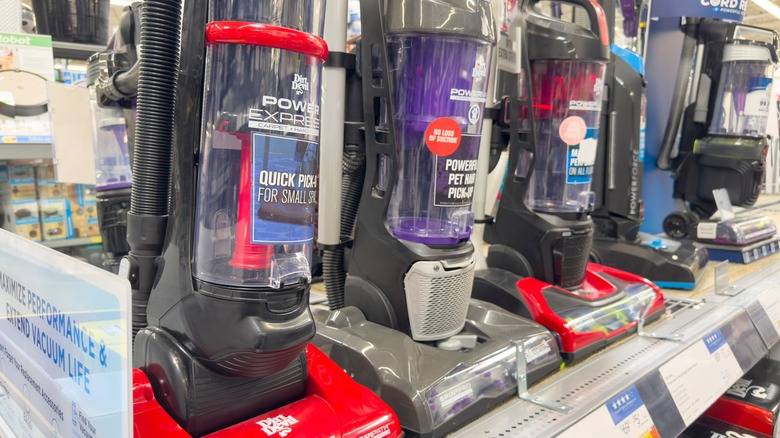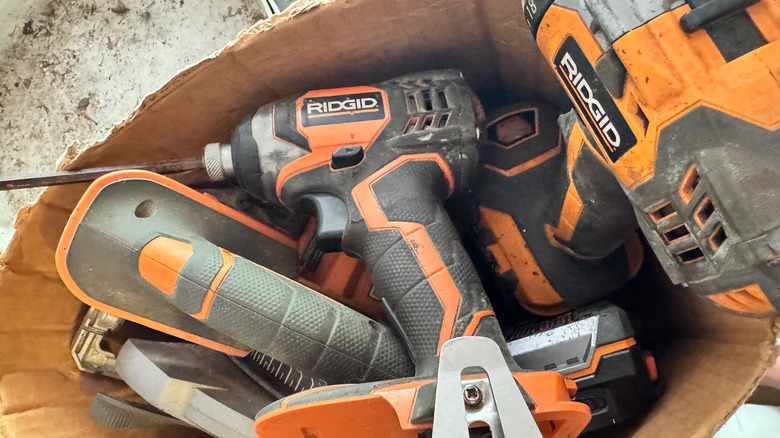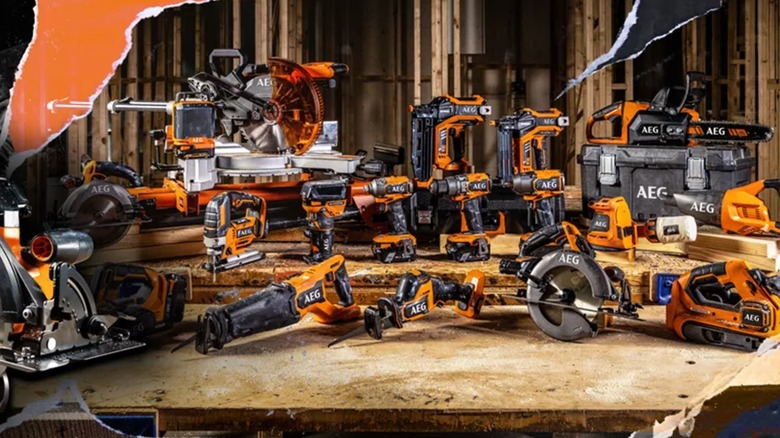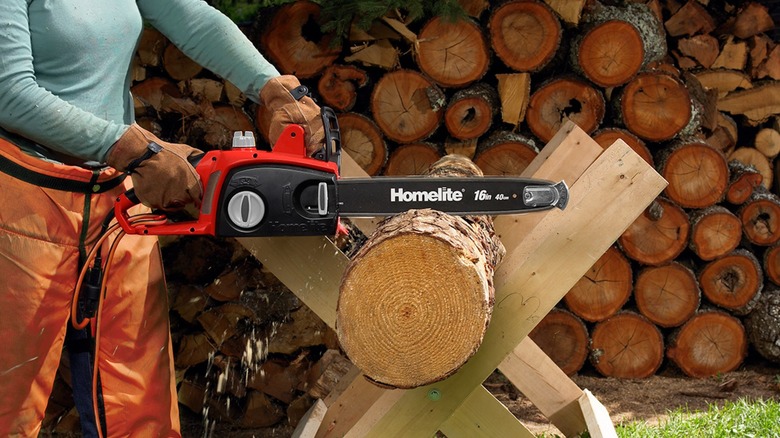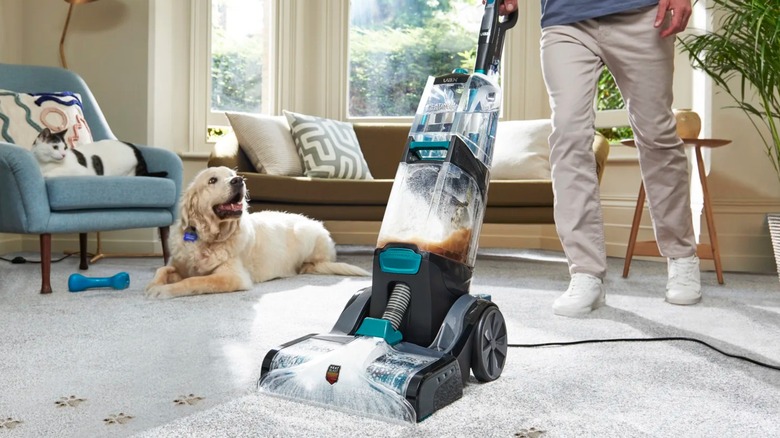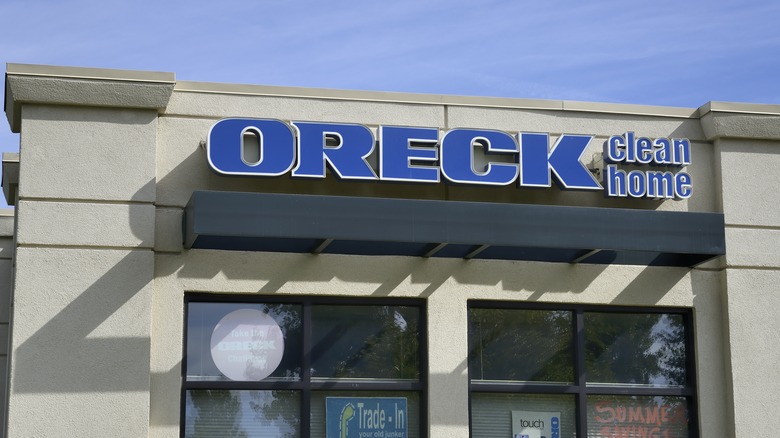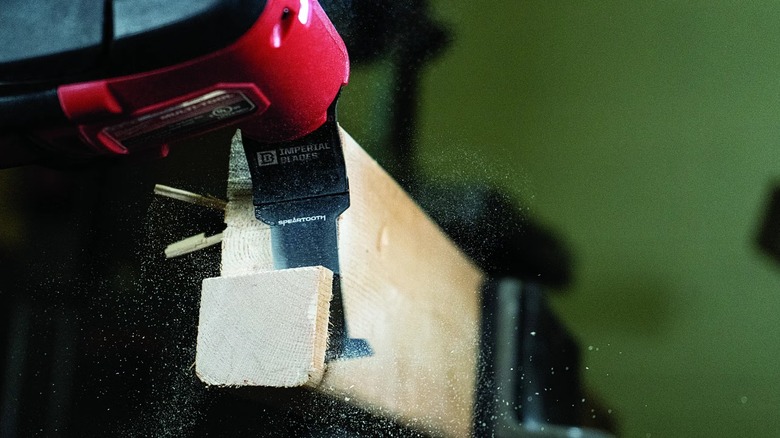13 Popular Tool & Appliance Brands Owned By China's Techtronic Industries (TTI)
We may receive a commission on purchases made from links.
Techtonic Industries, or TTI, is a name that plenty of tool users will be familiar with. Consumers won't readily see these three letters on the power tool or appliance box they've just taken home, but rest assured, the brand behind the abbreviation is standing behind the name you know and love in many instances. Techtronic Industries is a Chinese/Hong Kong-based conglomerate entity that owns and manufactures a surprisingly large range of major tool brands and appliance offerings.
The company got its start in 1985 and soon after began operating as a supplier, distributing power tools to U.S. brands. In 1988, the company's first manufacturing facility opened in Dongguan, China, and it became a publicly listed company in 1990 on the Stock Exchange of Hong Kong. Perhaps the company's first major acquisition, TTI became the owner of Vax in 1999, and it's been a story of growth and expansion from there. The early 2000s were a time of immense change within TTI's halls, and numerous big-name brands that it still owns today were purchased at this time (interestingly enough, positioned between the major stock market meltdowns of the dot-com bubble and the housing market collapse). TTI has continued its growth into the present market, and there's a good chance that you use TTI products in your everyday life or DIY tasks on a routine basis. TTI owns and builds a number of store-exclusive products, as well as widespread brands that are sold in abundance. These are some of the most popular brands in the company's portfolio.
Milwaukee
Milwaukee is potentially TTI's most prominent brand name. Milwaukee equipment has a storied past, with a century of operation under its belt. The brand is a fixture on jobsites all around the world, and the easily recognizable red and black color scheme of Milwaukee gear makes it stand out in a big way. Acquired by TTI in 2004, Milwaukee has become a gigantic name in the world of power tools (as well as providing a range of hand tool offerings). Milwaukee gear is fast, powerful, and trusted by professionals and DIYers alike. On the financial side of things, Milwaukee's total revenue in 2024 was nearly $10 billion, making it a huge earner for TTI with no signs of slowing down.
The brand offers all sorts of equipment that can improve your workflow and life. Plenty of Milwaukee products can make things easier at home (like non-marring knee pads or level 1 insulated work gloves). Milwaukee even makes insulated lunch boxes and other accessory equipment like speaker systems to help support your efforts out and about. Heading into the future, Milwaukee has filed patents for new and exciting equipment like a line launcher, a log splitter, and a new robot lawn mower.
Hoover
Hoover is another classic brand that many tool users might not have known is owned by TTI. The vacuum innovator has been in business for over a century and, in that time, has frequently found itself at the forefront of cleaning solution innovation. Hoover is synonymous with suction tools, and in many places, people call vacuums Hoovers in much the same way a circular saw user might refer to the cutting tool as a Skilsaw.
TTI announced the deal to acquire the Hoover brand in late 2006, paying $107 million for the company alongside an agreement to take on some existing obligations. Prior to its acquisition by TTI, Hoover had been owned by Whirlpool. Now it occupies a position within the conglomerate brand's TTI Floor Care North America division, and is headquartered in Charlotte. Hoover units have long been a key vacuuming resource for homeowners and renters, and modern tools within its catalog focus on cordless power as well as alternative cleaning implements that break the mold of the classic upright vacuum cleaner. These include spot cleaners, hand vacuums, and specialized hard floor cleaner tools, among others.
Ryobi
Ryobi is a brand that many know and love. The lime green power tool producer dabbles in virtually every sort of implement you might need for a home improvement project. The catalog is so deep that even haters of the brand can get behind numerous offerings. Ryobi is a toolmaker with an interesting and transformative history (beginning as a die casting outfit in 1943), and TTI plays an important role in that story. Starting at the turn of the century, TTI began acquiring components of the Ryobi brand. In August 2000, TTI took ownership of the American Ryobi power tools operation, and a year later, it added the European wing to its holdings. In March 2002, TTI purchased the Ryobi business interests in Australia and New Zealand for a price tag of 5.9 million AUD.
The Ryobi brand is an accessible option for renovators and trade professionals everywhere. The company has faced criticism from pros in the past, but there's no denying the blend of cost-effectiveness and performance chops that Ryobi gear brings to the table. A revenue of 293.31 billion JPY ($1.95 billion) in 2024 speaks volumes about the brand's staying power and value to users. Everything from crafting tools to heavy construction equipment can be found stamped in Ryobi lime, making it a brand to turn to for all manner of users.
Hart
Hart began its journey into the marketplace as a niche hand tool brand. The company made framing hammers designed and built for the people who rely on them the most. Hart innovated purpose-built head shapes and handle designs to make the framing hammer a better tool for framers. The inclusion of progressive angled faces and carefully balanced weight ratios made them more efficient and less fatiguing to use. Hart was established in 1983, and it didn't take long for the brand to expand its offerings. Other hand tools like axes, mauls, chisels, and mattocks joined the catalog, and the modern lineup also includes consumer power tools and outdoor equipment like chainsaws and lawnmowers.
Hart was acquired by TTI in 2007. Hart added crucial hand tool coverage to TTI's portfolio, bolstering an already significant power tool and accessory presence in names like Milwaukee and Ryobi. In 2019, Hart partnered with Walmart to make it an exclusive line for the everything store. The Hart brand offers competitively priced options capable of getting the job done on a budget. Some of the design choices are a little clunky or not fully realized, but this is to be expected in a tool brand focusing on price reductions while keeping power and performance front and center.
Stiletto
Stiletto is a hand tool brand that's among the legendary names in the American trades. The hammer maker got its start during the California Gold Rush, launching as the in-house tool brand for Baker, Hamilton & Pacific Co. in 1849. The brand has made pristine striking tools and other hand tool equipment ever since, delivering durable, quality gear to some of the most labor-intensive industries in existence. Today, Stiletto's primary claim to fame comes from the fact that the manufacturer is perhaps the preeminent builder of titanium hammers, axes, and prybars. Stiletto's titanium designs offer a nearly 50% reduction in the weight of a tool while providing an unchanged striking or pulling force. Putting that into context, a framer can essentially perform almost twice the amount of work with a titanium tool in their hand compared to a steel alternative while expending the same amount of energy. Since the workday doesn't become twice as long when you upgrade tools, the practical result is a hammer user who is far less physically spent at the end of a long day filled with driving nails.
TTI acquired Stiletto in 2007, although the arrangement technically places Stiletto as a part of the Milwaukee tool company rather than a direct subsidiary of TTI itself. It's worth noting that this distinction isn't made on TTI's branding website, however. Stiletto is a brand that will set you back more than a few bucks, but users often report that they will keep and use their hammers and other Stiletto gear for decades.
Dirt Devil
Another big name in the cleaning world, TTI acquired Dirt Devil and its parent company, Royal Appliance, in 2002. The vacuum company was already a significant player in the North American marketplace, and TTI opted to roll it into its TTI Floor Care North America subsidiary. Headquartered alongside other vacuum and household appliance names under the TTI banner in Charlotte, Dirt Devil has continued to thrive as a major player within the TTI portfolio.
Dirt Devil vacuums include both standing, classic vacuum cleaner designs and numerous alternative builds. These feature as handheld solutions, spot cleaners, and scrubbers that offer portability and maneuverable cleaning power. The company also makes air purifiers and heavy-duty carpet cleaning tools to round out the floor cleaning and environmental improvement capabilities of the home. Combined with its other big-name holdings, Dirt Devil is an acquisition that TTI brass is likely very happy with all these years later.
Ridgid
Ridgid is an interesting case. Unlike most of TTI's holdings, Ridgid is actually owned by Emerson Electric, but the brand is licensed to TTI, and production of Ridgid equipment is something of a crossover rebranding. TTI makes both Ridgid and AEG equipment, branding the tools with one badge (Ridgid) in the United States and the other (AEG) in Europe. Ridgid is a company with over a century of history. It was founded in Ohio, where it maintains a presence to this day, and first created iron wrench handles to support the brand's iconic pipe wrenches in Erie, Pennsylvania.
TTI is responsible, particularly, for Ridgid's cordless power tools. The licensing agreement came into effect in 2003, and TTI has built the brand's power tools ever since. Even so, Emerson maintains actual ownership over the company (since purchasing it in 1966) and builds its other tool offerings in-house rather than through a licensing arrangement. It's also worth noting that the orange skin adorning Ridgid tools is a clear-cut symbol of the brand behind the example's manufacturing. Orange Ridgid gear was produced by TTI, while red alternatives come from its parent company, Emerson.
AEG
The other side of TTI's Ridgid coin, AEG, is a brand that TTI bought in 2005. AEG was founded as DEG in 1883 but changed its moniker in 1887 to Allgemeine Elektricitäts-Gesellschaft (General Electric Company). In 1898, the brand delivered the first transportable drilling machines to the market, and the landscape of power tools and heavy workplace demands was forever altered. The company was also an early player in the development of Germany's use of the assembly line.
Ahead of TTI's acquisition, AEG had been trending toward use primarily within the DIY marketplace. However, the change of ownership ushered in a number of new directions of focus, including an expansion beyond the brand's home region. In 2006, TTI introduced AEG products to the Middle East and South Africa, and sought to expand its presence in Eastern Europe, as well. New tools hit the market, and in 2009, the company's catalog was reimagined to include an orange colorway on all of its power tool solutions. The result is a streamlined crossover between TTI's production of orange-themed Ridgid tools and its AEG lineup.
Homelite
An agreement to purchase Homelite from Deere & Co. Group was announced at the end of 2001. The next year, TTI took over the outdoor power tool brand in an effort to push its boundaries and introduce a new segment to the tool offerings held within the company's interests.
Homelite produces string and hedge trimmers, chainsaws, and leaf blowers. Its products form a major segment of the outdoor power tool marketplace that homeowners everywhere rely on. The brand was founded in 1921 and originally served as an electricity production option for rural farmers who weren't yet covered by expanding electricity grids. Initially formed as the Home Electric Lighting Company, Homelite generators were instrumental in powering essential new technological developments in the agrarian countryside. Later, the brand's generators would serve a central role in keeping American troops switched on, so to speak, as they traversed the global battlefields of World War II.
Vax
Cleaning solutions have long been at the heart of the TTI mission. Early on in its journey, TTI acquired the Vax brand, bringing powered floorcare tools into its portfolio in 1999, before engaging with staples like Ryobi, Homelite, or Milwaukee. Vax isn't a brand that many Americans might be familiar with. The company was founded in Britain in 1977 and offered the first commercial carpet washing solution that homeowners could bring into their cleaning arsenal. The 3-in-1 machine was compact and potent, offering a stable starting point for a brand that would grow into a significant U.K. floor care business.
Modern Vax solutions include the classic carpet washing options, with spot cleaning tools and a stand-up model that's easy to use over a widespread area — such as an entire room or home. The brand also makes cordless vacuums and hard-floor cleaning solutions. Vax has continued to enjoy a significant status among British users, even with the Dyson craze coming into the picture later on. Vax isn't a big name in the American market, considering all the other competitive options to choose from, but its global presence is genuinely notable.
Oreck
Another vacuum brand, Oreck rounds out the primary cleaning segment of the TTI portfolio. Oreck makes all manner of industrial and consumer floor cleaning tools, as well as air purifiers and accessory cleaning solutions and replacement products (belts, filters, vacuum bags, and the like). Oreck offers cordless and portable vacuum tools, too, placing it in the same conversation as both industrial cleaning brands and consumer options all at once.
TTI brought Oreck into its holdings in 2013, and specifically notes that the company holds a special place in the hearts of many American users. Oreck was founded in 1963 and quickly grew into what TTI refers to as "one of America's most beloved vacuum brands, with a fiercely loyal base of customers." Oreck is one of TTI's most recent purchases, but it's certainly not one that marks a change of pace for the voracious conglomerate brand. This vacuum company is another that was folded into the TTI Floor Care North America umbrella, along with Hoover and Dirt Devil.
Imperial Blades
Imperial Blades is an American accessory manufacturer founded in 2008. The company lays claim to inventing the universal anchor in 2009, a design feature that has come to underpin multitool blade attachment across virtually the entire spectrum of brands (over 40 tool manufacturers utilize compatibility with the anchor design). The company also introduced titanium coatings to its multitool blades, marking a significant technological leap in 2010. Adding titanium into the mix helps keep the heat on the cutting surface lower, while naturally lubricating cuts to extend the life of the accessory and slow the effects of wear and tear on the teeth. Imperial Blades would also introduce titanium-coated carbide blades into its lineup in 2016, paving the way for additional cutting coverage in hard materials that go beyond just lumber.
After a rapid succession of new innovations and tool accessory improvements, Imperial Blades was acquired by TTI in 2018. The purchase was made through TTI's Milwaukee brand, so the accessory builder is technically organized as part of Milwaukee rather than TTI directly. This is fitting since both businesses are based in Wisconsin, delivering a regional flavor and shared heritage that isn't typically found in corporate ownership changes.
Empire Level
Another acquisition that features a common regional heritage, in 2014, TTI acquired Empire Level through its Milwaukee subsidiary, bringing another Wisconsin-based tool manufacturer into the fold. Empire has been serving the construction industry since 1919, providing levels, squares, tape tools, and layout solutions. The modern product catalog also includes laser tools, precision measurement equipment such as calipers and measurement gauges, and even accessory equipment like safety tape to mark off areas and hazards.
Empire brings a core functionality component to the TTI brand catalog, and it's an area that often flies under the radar among users outside of the professional sphere. Even so, the company delivers on an essential segment of the construction and renovation industries. Empire isn't shy when it comes to innovation, either. Users can get hold of auto-calibrated, digital level tools as well as the classic vial options. The squares from Empire feature permanent marking and are exceedingly accurate, giving users a level of confidence that goes a step above.
